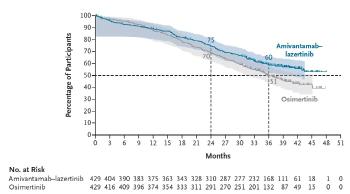Prostate Cancer Surges to No. 2 Male Cancer...It is urgent to introduce PSA tests for early diagnosis of the Korean Society of Oncology
Sep 16, 2025
|
Chairman Chung Byung-chang (Professor of Urology at Samsung Medical Center) of the Korean Society of Urology and Oncology has continued various campaigns and educational activities by designating the third week of every September as the 'Week to Know Prostate Cancer' to spread the right awareness of prostate cancer and to establish early screening in daily life"This press conference, which marks the 10th anniversary of this year, aims to examine the current status of prostate cancer and treatment strategies, and to inform the public of the importance of PSA testing." We hope that this discussion will further spread social consensus on the need for early screening" he said.
◇'No. 2 Male Cancer' Prostate Cancer, Early Diagnosis Important
According to the announcement of the Central Cancer Registry in 2024, the number of new prostate cancer patients as of 2022 was 27,754, accounting for 7.4% of all cancer cases, and the ranking of male cancer cases jumped from 4th place in 2021 to 2nd place at once. In particular, the incidence of prostate cancer over the age of 65 is 416.1 per 100,000 people, and the burden of prostate cancer is expected to increase in Korea, which is about to enter a super-aged society.
The overall five-year relative survival rate of prostate cancer patients in Korea is 96%, but this is meaningful in that there are many early detection patients. In fact, if found in the local stage, the 5-year survival rate reaches 100%, but drops to 49.6%, less than half in the remote transition stage.
Park Sung-woo, vice chairman of the Korean Society of Oncology and Oncology (Professor of Urology at Yangsan Pusan National University Hospital), explained, "Prostate cancer has excellent treatment outcomes that can be cured if it is detected early, but if it is metastasized, the treatment outcomes deteriorate rapidly." "Early diagnosis is a key variable that determines a patient's survival rate and quality of life." Subsequently, Vice Chairman Park Sung-woo said "Women have institutional opportunities for early detection through breast and cervical cancer screening, but men do not. Prostate cancer is a representative case of being placed in a blind spot in the national management system."
◇Age of precision medicine, a change in treatment paradigm
Prostate cancer treatment is rapidly shifting away from the existing surgery or hormone treatment center and into an era of precision medicine that comprehensively considers the patient's genetic characteristics, stage, and risk. Recently, innovative treatments such as gene targeted therapy (PARP inhibitors), radioactive ligand therapy (PSMA RLT), and immuno-cancer drugs have been introduced, expanding treatment options. The next generation option in the spotlight is Theranomics, which performs both diagnosis and treatment at the same time. It is called 'guided missile treatment' by accurately diagnosing the location of cancer cells with the PSMA-PET test and then combining radioactive isotopes to continue treatment, suggesting the possibility of extending the survival period to advanced patients who do not respond to existing treatment.
Vice Chairman Park Sung-woo "Now, prostate cancer treatment is developing into customized precision medicine that reflects individual characteristics of patients. However, advanced treatment still has an economic burden and a gap in regional accessibility, so institutional supplementation such as expanding the benefits of new drugs and supporting genetic panel testing is essential, he stressed.
◇ PSA test, key to early diagnosis of prostate cancer
The importance of early diagnosis is becoming more prominent as high-risk groups account for more than half of prostate cancer patients in Korea. As a result of analyzing about 71,000 prostate cancer patients registered for 10 years (2010-2020), more than 50% were classified as high-risk groups, which is significantly higher than in developed countries. In addition, the average age of diagnosis of prostate cancer patients in Korea was 71, with those in their 60s or older accounting for more than 90%, and in particular, the proportion of patients aged 75 or older reached a third, and many were already elderly at the time of diagnosis.
Prostate cancer is difficult for patients to recognize on their own because there are few initial symptoms, and diagnosis is likely to be delayed. For this reason, a prostate-specific antigen (PSA) test plays a key role in early diagnosis of prostate cancer. PSA is a protein produced by the prostate, and when cancer cells increase, blood PSA levels increase. PSA tests, which are conducted with simple blood tests, have low patient burden and high accessibility, so if included in regular checkups, the effectiveness of prostate cancer management can be greatly increased.
Prostate cancer is divided into low-risk groups (PSA ≤10, Gleason ≤6, stage T1-T2a) ▲ middle-risk groups (PSA >10-≤20, Gleason 7, stage T2b) ▲ high-risk groups (PSA >20, Gleason 8-10, stage ≥T2c), and treatment strategies vary accordingly. Therefore, PSA testing is a starting point for quickly identifying which risk group the patient belongs to beyond simple early diagnosis means to reduce unnecessary overtreatment and enable customized treatment strategies.
Ko Young-hwi, editor-in-chief of the Korean Society of Oncology (Professor of Urology at University Urology Hospital), said "In prostate cancer, treatment outcomes and survival rates are clearly different depending on early diagnosis. The PSA test is a simple and accurate blood test that can contribute to increasing patient survival and reducing social and economic costs.' He then emphasized that "institutional supplementation is needed to include PSA tests in national screening programs so that all men can receive them regularly."
Through this meeting, the Korean Society of Urology and Oncology reminded us once again that prostate cancer is rapidly increasing in the elderly, and emphasized that PSA testing is a key means of increasing survival rates and advancing treatment outcomes for prostate cancer patients. In the future, the society plans to continue activities to provide accurate information and inform the necessity of early examination.
|
This article was translated by Naver AI translator.















